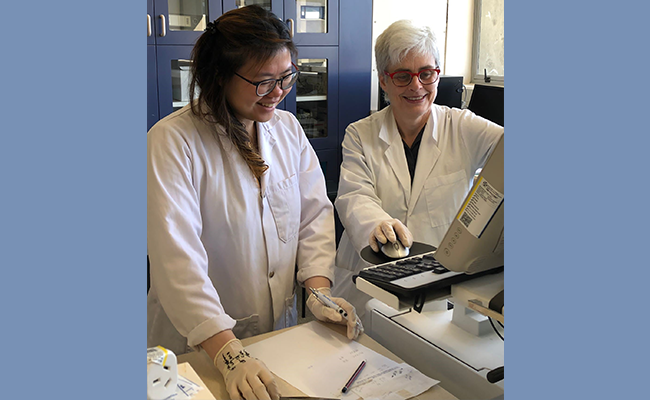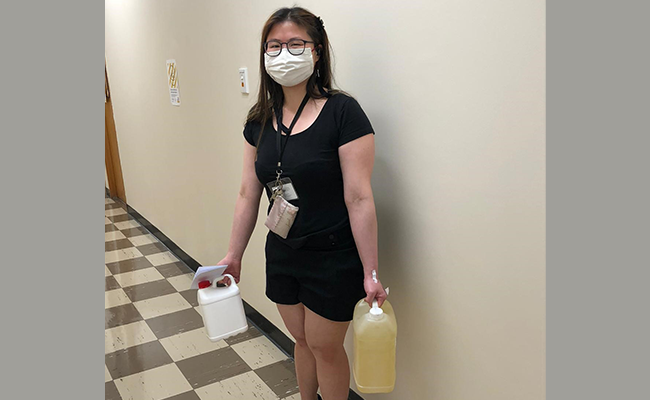
PhD candidate Nan Xin Wang, on the left, is looking forward to graduating.
Increasing the iodine content in table salt or diversifying the sources of food iodised salt is added to could help prevent iodine deficiency in Aotearoa New Zealand's population, especially among women of reproductive age, an Otago PhD graduand says.
The conundrum is iodine in New Zealand is coming from salt, and people are being encouraged to reduce their intake of salt, says Human Nutrition Department PhD candidate Nan Xin Wang.
Wang will graduate on Saturday after spending three years investigating people's discretionary (added) salt intake and how that relates to people getting both sodium and iodine in their diet.
She says the World Health Organisation (WHO) recommends cutting population sodium intake, which can lead to high blood pressure, in turn increasing a person's risk of cardiovascular diseases, by 30%.
Like most countries in the world, New Zealand has an excessive sodium intake.
The WHO recommends no more than 2000 milligrams per day to prevent non-communicable diseases, but New Zealanders often exceed that.
“We don't have a national estimate of sodium intake in New Zealand, but it's slightly over 3000mg per day, so it's in excess. Obviously, we want to try and reduce that.”
Wang collected three days' worth of urine from more than 100 people and analysed the samples to come up with each person's 24-hour discretionary intake of salt.
She also looked at iodine intake using the last New Zealand Adult Nutrition Survey conducted in 2008/09.

Wang says the soil in New Zealand is low in iodine, meaning fruits and vegetables grown in New Zealand have very little iodine.
The soil in New Zealand is low in iodine, therefore fruit and vegetables grown here have very little iodine. Foods high in iodine, such as seafood or seaweed, are not consumed frequently in a New Zealand diet, she says.
The government realised New Zealanders were not getting enough iodine so started adding it to bread, and table salt, which is iodised salt.
But it is still not enough for some of the population.
“So that's why I needed to measure people's salt intake to be able to estimate roughly how much of your iodine is actually coming from table salt.”
Iodine plays an integral role in forming thyroid hormones.
“If you don't get enough in your diet, then you can't make enough of the thyroid hormone which is needed, especially, during pregnancy for women, in the first trimester where the foetus uses the mother's thyroid hormones for brain and spinal development.”
If a pregnant woman is severely deficient in iodine their child could be born deaf or mute as well as being stunted in size.
“Part of your iodine is coming from salt. We want to reduce your salt intake, but at the same time, maintain your iodine intake.
“That's really the whole overarching story of my thesis.”
Current legislation for iodised salt requires there to be 25 to 65 milligrams of iodine per kilogram of salt, but this likely needs to be increased.
Wang says she is very happy to receive an Exceptional Thesis recognition and is looking forward to her graduation on May 20. Members of her family are flying in from Singapore to help her celebrate.